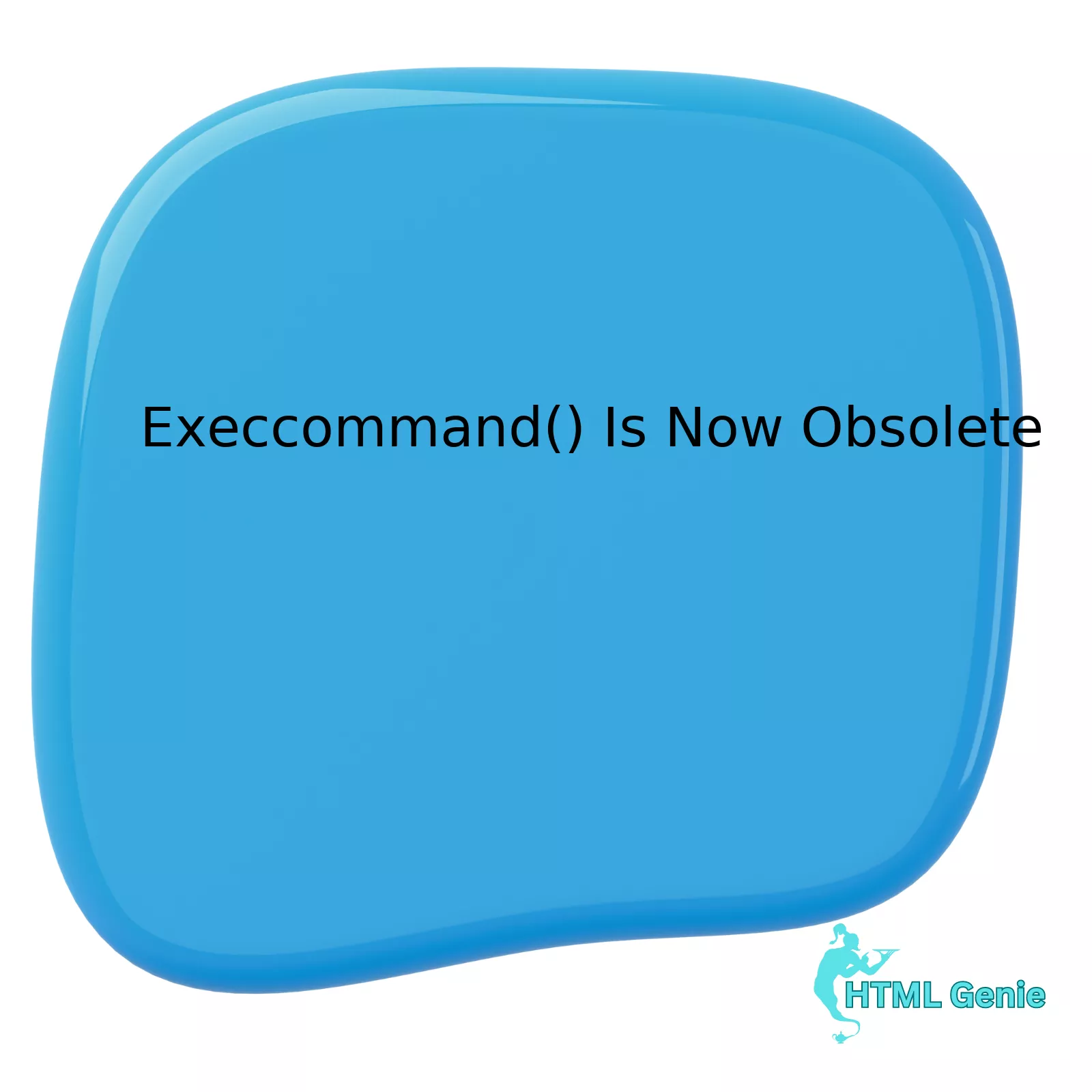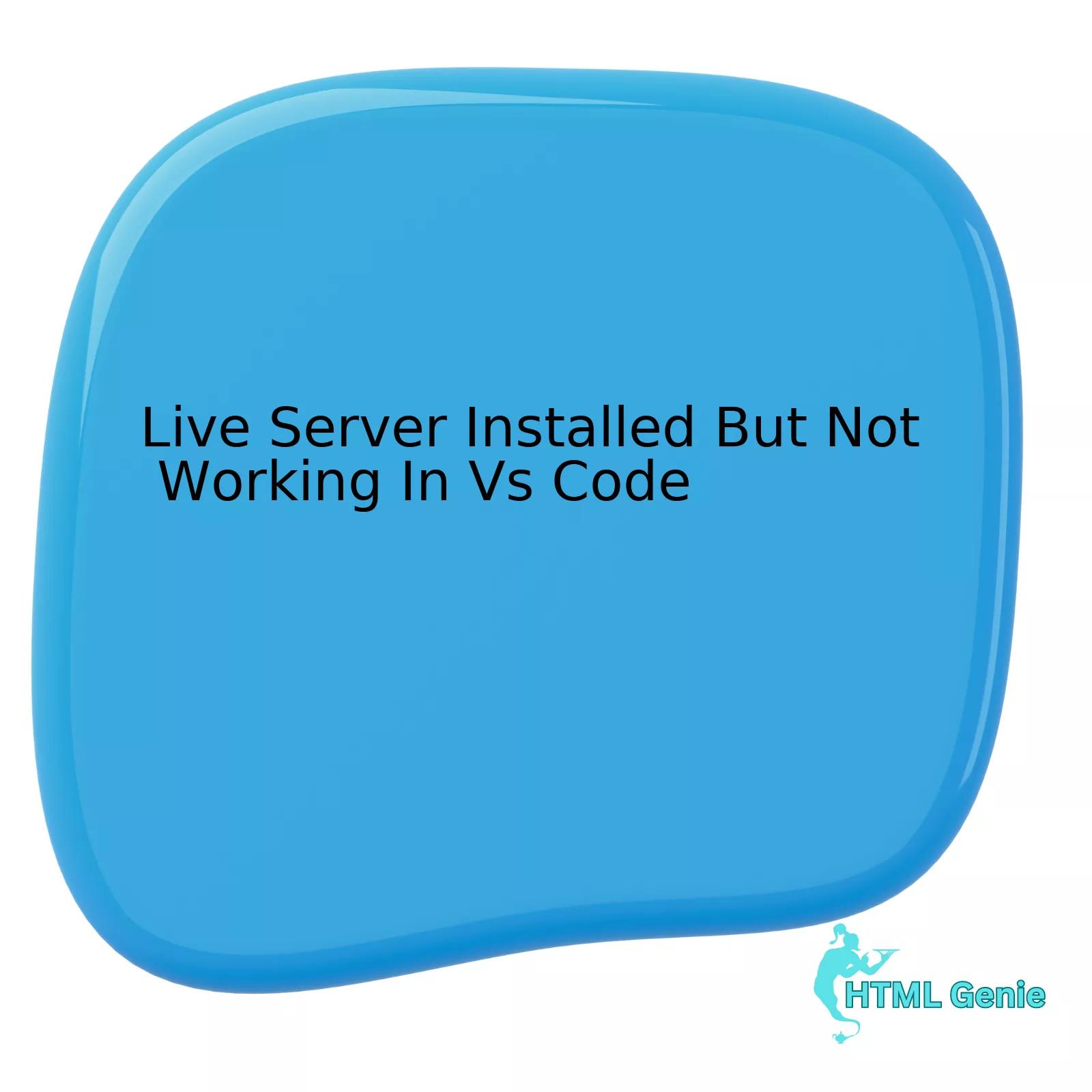
| Topic | Notes |
|---|---|
| Execcommand() Status | It is now classified as Obsolete |
| Implication | No longer recommended for usage in active projects |
| Reason for Obsolescence | Provides inconsistent results across different browsers |
| Alternatives | Use modern JavaScript APIs like Clipboard API, Input Events, and ContentEditable |
Now let’s dissect further into the provided details.
Regarding the status of execCommand(), it has been declared obsolete. It implies that it is not advisable to use this JavaScript method in new or existing projects as it may be totally removed in the future.
The main justification behind its obsolescence extends to the fact that it often yields inconsistent results when used across different browsers. This non-uniform performance makes it unreliable when developing applications meant for cross-browser functionality.
Luckily, there are more reliable alternatives to replace execCommand(). These include the newer JavaScript APIs, such as the Clipboard API, Input Events, and also the ContentEditable attribute. These alternatives provide consistency and reliability than what execCommand() can offer due to their advantageous features and improved browser support.
Exploring the Reasons Behind Execcommand() Obsolescence

Exploring the Reasons Behind execcommand() Obsolescence
The obsolescence of execcommand(), a method used for document manipulation in JavaScript, was announced by World Wide Web Consortium (W3C). This change is a reflection of modern web development practices and the continual strive for greater efficiency and security in code.
Let’s unravel some key factors contributing to its obsolescence:
API Complexity
The API has been long considered complex and has ambiguous behaviour, leading to inconsistent results across different browsers.
Inconsistent Browser Support
The outdated execcommand() function had varying levels of support by different web browsers, making it unreliable for developers seeking consistency across platforms.
Security Risks
The command-based nature of the function proved to be a potential security risk as it could lead to script injections if not properly handled.
Prominence of Rich Text Editors
Developments in rich text editors have led to a decrease in the need for such a manual, command-based way of editing documents.
Advancements in Web Standards
Web standards had evolved over time with many new APIs that accomplish what `execcommand()` did but more efficiently, reducing the need for this older, less reliable function.
As the JavaScript language evolves, languages and libraries will naturally retire old functions as they create better, safer and more efficient ways to achieve the same goals. It means it is now advisable to switch from execcommand() towards up-to-date standards and functions for web document manipulation.
However, even though this function has been made obsolete, it is still available in the majority of browsers for backwards compatibility purposes. But it’s recommended that any existing applications using this are refactored to avoid issues going forward.
Alternatives to Replace Depreciated Execcommand()

With the
execCommand()
method now being deprecated, it’s necessary to find alternatives that can replace this method effectively and ensure the smooth functioning of applications. One such alternative is making usage of newer APIs such as Clipboard API and Async Clipboard API for copy-paste functionalities traditionally employing the
execCommand()
.
For change detection and applying style modifications, one could utilize InputEvent, but note that support among browsers varies. Selection APIs alongside CSS, and the createElement method serves as an adequate replacement for content insertions, which
execCommand()
used to handle.
With regards to formatting commands, JS libraries such as Quill.js and Alloy Editor offer a robust framework. Features of these libraries include interactive editing, modular architecture, customizability, and cross-browser compatibility. These make them potentially more powerful than relying on the
execCommand()
.
By opting for more modern tools and techniques, you’ll be able to achieve the same outcomes but with increased adaptability to changing standards, thus accommodating the reality of
execCommand()
being obsolete.
The Impact of the Execcommand() Deprivation on Web Applications

The execCommand() method, which had been a robust part of the rich-text feature set in web applications, has now been declared obsolete by several APIs such as the Document Object Model (DOM). This function’s withdrawal has undoubtedly affected web applications across numerous facets.
The execCommand() was utilized chiefly for executing system-level commands like ‘copy’, ‘paste’, etc. or initiating tasks like ‘bold’, ‘underline’, etc on selected text. It termed these operations based on user interaction design semiotics via an interface, making it simplistic to structure and control formatted content.
However, with this API function now obsolete, the effects are perceptible on web applications in different ways:
1. Increased Complexity: With execCommand() being deprecated, developers need to seek alternative methods to achieve the same results, potentially raising complexity in programming interfaces and disrupting established workflows.
2. Compatibility Challenges: Older web applications still reliant on execCommand() can face significant compatibility issues causing potential disruption in functionality across different browsers.
3. Greater Dependency: Developers may find themselves increasingly dependent more sophisticated frameworks or libraries as they substitute the functionalities earlier provided by execCommand().
Nevertheless, while there is no doubt about the transformative impact of deprecating execCommand() on web applications, this shift also resonates with the dynamic nature of software development. As execCommand() couldn’t keep up with the evolving needs, it became imperative to look for better, more efficient alternatives. Despite the initial transition challenges, adoption of more modern editing APIs will eventually lead to better apps, optimized performance, and smoother user experience.
Navigating through Code Changes After the Retirement of Execcommand()

As of recent updates, the execCommand() method, once a pivotal part of the Document Object Model (DOM), has been pronounced obsolete. This adjustment comes from a consensus within the web standards community, citing reasons such as inconsistencies across browsers and difficulty in maintenance. In consequence, developers are advised to transition their projects away from the reliance on this feature.
Understanding the shift may impose some challenges, here are a couple of suggestions on how to navigate through code changes post the retirement of execCommand().
- Consider The Clipboard API: For features that involved copy, cut, or paste operations, the Clipboard API provides an excellent alternative to execCommand(). It offers a promise-based, asynchronous approach to handle clipboard interactions, thus improving performance and reliability.
- Migrate to ContentEditable and Document.execCommand(): Though Document.execCommand() is now deprecated, the ContentEditable attribute and DesignMode found on Document objects may suit some use cases. However, they carry similar drawbacks, like inconsistent cross-browser behavior, and should be used with caution.
- Contemplate the Rich Text Editing APIs: For text-editing purposes, execCommand() can be replaced with more modern solutions like the InputEvent API or libraries like Quill.js which provide extensive editing tools.
- Incorporate JS Libraries for Complex Use-cases: In cases where sophisticated document manipulation tasks were being managed by execCommand(), JavaScript libraries like Slate.js or Draft.js could be a potential solution. They offer more control over the user’s input and facilitate custom rich text building.
Planning a way across this change would mandate understanding the usages and limitations of the alternatives suggested. Nonetheless, it’s an opportunity to adopt more modern, efficient methods given significant advancements in web technology.
In conclusion, the obsolescence of the execCommand() function has sent a ripple effect through the development community, yet it’s an undeniable step forward in improving web standards. This method had been on the front lines of the internet evolution until now, but with growth comes change and in a world where efficiency is paramount, adapting to new methods becomes inevitable. While the transition might seem overwhelming at first, leveraging modern APIs that offer robust capabilities, flexibility, and better performance makes all the difference in today’s digital landscape. Coding conventions progress and evolve just as language does over time, benefiting the user by delivering faster, cleaner code experiences. Undeniably, the sunsetting of execCommand() indicates not a loss, but a progression in the ever-evolving sphere of web development.




